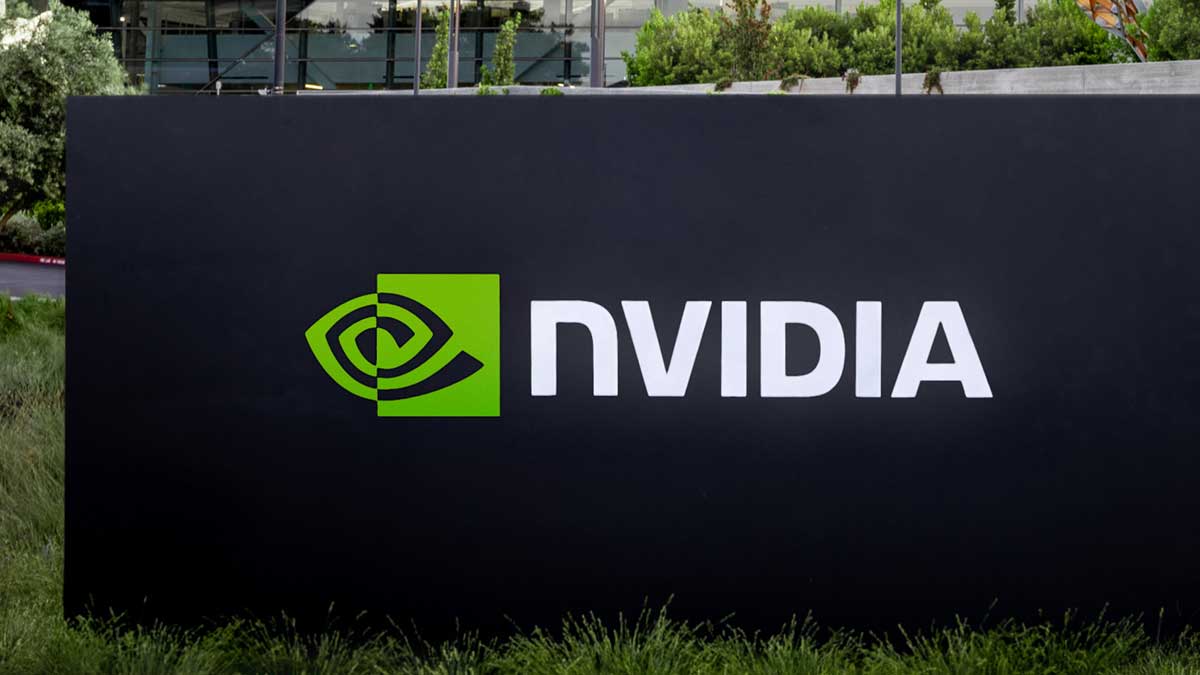- Home
- Billionaires
- Investing Newsletters
- 193CC 1000
- Article Layout 2
- Article Layout 3
- Article Layout 4
- Article Layout 5
- Article Layout 6
- Article Layout 7
- Article Layout 8
- Article Layout 9
- Article Layout 10
- Article Layout 11
- Article Layout 12
- Article Layout 13
- Article Layout 14
- Article Sidebar
- Post Format
- pages
- Archive Layouts
- Post Gallery
- Post Video Background
- Post Review
- Sponsored Post
- Leadership
- Business
- Money
- Small Business
- Innovation
- Shop
Recent Posts
Nvidia Faces Antitrust Probe in China, Shares Drop

Shares of Nvidia saw a sharp decline of approximately 2% during early market trading on Monday following the announcement that China had launched an antitrust investigation into the company. This probe is focused on Nvidia’s acquisition of Mellanox Technologies, a computer networking equipment company, in 2020 for $7 billion. The investigation is a significant development for Nvidia, which has been one of the world’s most valuable and influential companies in recent years, benefiting greatly from the ongoing boom in artificial intelligence (AI) technologies.
The Chinese government’s State Administration for Market Regulation officially confirmed the probe, marking an escalation in scrutiny over Nvidia’s business practices. The investigation concerns Nvidia’s 2020 acquisition of Mellanox, a transaction that had previously been approved by Chinese authorities, albeit with conditions. Specifically, the deal was approved with the stipulation that Mellanox would provide its competitors with timely information about new products, no later than 90 days after Nvidia received such information. Additionally, Chinese chip companies were granted the right to ensure that their products were compatible with Mellanox’s technology.
The recent move by China is seen as part of a broader trend of regulatory and political tensions between the U.S. and China, particularly in the technology sector. Nvidia’s shares were down by slightly over 2% at around 9:45 p.m. EST following the news. The company did not provide an immediate response to requests for comment on the matter, leaving investors and analysts to speculate on the potential implications of the investigation.
This investigation into Nvidia comes amid heightened tensions between the two economic giants. It follows a series of actions taken by the U.S. government, including President Joe Biden’s expansion of restrictions on the sale of advanced technology to China. Last week, the Biden administration took further steps to restrict the sale of certain chips and machinery to China, citing national security concerns. In retaliation, the Chinese government announced a ban on the export of several rare minerals to the United States. Additionally, China imposed sanctions on U.S. defense companies and executives, which many see as a response to the increasing technological rivalry between the nations.
The investigation into Nvidia is particularly noteworthy given the company’s prominence in the global tech landscape. Over the past few years, Nvidia’s stock has experienced a meteoric rise, driven largely by the surge in demand for AI technology, particularly in areas such as machine learning and data centers. The company is a key player in the development of AI technologies, and its chips are widely used in everything from gaming to autonomous vehicles, and most notably, AI applications. This growth has contributed to a dramatic increase in Nvidia’s market value, which has helped catapult the company into the upper echelons of the tech industry.
However, Nvidia is also facing increasing scrutiny in the United States regarding its business practices. The U.S. Justice Department has been investigating Nvidia for potential antitrust violations, focusing on the company’s acquisition of the startup RunAI, as well as other aspects of its chip business. The Justice Department’s inquiry suggests that Nvidia could be facing challenges in both the U.S. and China as it navigates complex regulatory environments in the two largest economies in the world.
At the heart of the investigation is the question of whether Nvidia’s actions, both in the Mellanox acquisition and its broader business strategy, may be anti-competitive. The U.S. government has expressed concern that Nvidia’s dominant position in certain areas of the semiconductor industry could potentially stifle competition, particularly as the company expands its reach into AI technologies. In China, regulators are also examining whether Nvidia’s acquisition of Mellanox may have led to unfair practices that could harm competitors in the region, particularly Chinese chipmakers who rely on Mellanox’s technology to integrate with Nvidia’s offerings.
Despite these challenges, Nvidia’s CEO, Jensen Huang, remains one of the wealthiest individuals in the world. As of the latest estimates, Huang’s net worth is valued at $124.3 billion, making him the 11th richest person globally, according to real-time tracking by Bloomberg. Huang’s fortune is largely tied to his 3.5% stake in Nvidia, and the company’s stock performance has been crucial to his wealth. In October, Huang briefly broke into the world’s top 10 richest individuals after Nvidia’s stock soared to an all-time high of nearly $144 per share. The company’s strong financial performance, driven in part by the AI boom, has been a major contributor to Huang’s wealth and the company’s valuation.
However, as Nvidia faces growing regulatory challenges in both the U.S. and China, its future growth prospects may be influenced by the outcome of these investigations. The ongoing scrutiny could have significant implications for the company’s business practices, particularly in terms of its acquisitions and expansion into new markets. It also raises broader questions about the future of the tech industry, as governments around the world increasingly look to regulate the power and influence of major tech companies.
As Nvidia navigates this period of uncertainty, investors and analysts will be closely watching the developments surrounding the company’s legal and regulatory challenges. The outcome of the antitrust investigation in China could have long-term effects on Nvidia’s business strategy, as well as on its stock performance. Additionally, the investigation highlights the growing tensions between the U.S. and China over technology, with both countries seeking to maintain their competitive edge in the global tech race.
In conclusion, Nvidia’s recent share slide is a reminder of the increasing risks that come with operating at the intersection of cutting-edge technology and geopolitics. As the company faces scrutiny from regulators in both the U.S. and China, its ability to navigate these challenges will be crucial in determining its future trajectory in the rapidly evolving tech industry.
Recent Posts
Categories
- 193 Countries Consortium Partner1
- 193cc Digital Assets2
- 5G1
- Aerospace & Defense48
- AI37
- Arts3
- Banking & Insurance11
- Big Data3
- Billionaires1,467
- Boats & Planes1
- Business332
- Careers13
- Cars & Bikes79
- CEO Network1
- CFO Network17
- CHRO Network1
- CIO Network1
- Cloud10
- CMO Network18
- Commercial Real Estate7
- Consultant1
- Consumer Tech194
- CxO1
- Cybersecurity73
- Dining1
- Diversity, Equity & Inclusion4
- Education7
- Energy8
- Enterprise Tech29
- Events11
- Fintech1
- Food & Drink2
- Franchises1
- Freelance1
- Future Of Work2
- Games149
- GIG1
- Healthcare79
- Hollywood & Entertainment203
- Houses1
- India’s 1000 Richest1
- Innovation46
- Investing2
- Investing Newsletters4
- Leadership65
- Lifestyle11
- Manufacturing1
- Markets20
- Media327
- Mobile phone1
- Money13
- Personal Finance2
- Policy569
- Real Estate1
- Research6
- Retail1
- Retirement1
- Small Business1
- SportsMoney42
- Style & Beauty1
- Success Income1
- Taxes2
- Travel10
- Uncategorized14
- Vices1
- Watches & Jewelry2
- world's billionaires1,436
- Worlds Richest Self-Made Women2
Related Articles
HBO and Cablevision Founder Charles Dolan Dies at 98
Charles Dolan, the visionary founder of HBO and Cablevision, passed away at...
By 193cc Agency CouncilDecember 30, 2024Bitcoin Reaches $100K, But Altcoins Outperform in 2024
Bitcoin’s performance in 2024 was nothing short of historic, as it crossed...
By 193cc Agency CouncilDecember 28, 2024Apple Unveils Limited-Edition Year of the Snake AirTag in Japan
In an announcement that will likely leave Apple enthusiasts excited but also...
By 193cc Agency CouncilDecember 27, 2024Mega Millions Jackpot Hits $1.15B; Winner Faces Major Taxes
The Mega Millions jackpot has soared to an estimated $1.15 billion, following...
By 193cc Agency CouncilDecember 26, 2024















Leave a comment